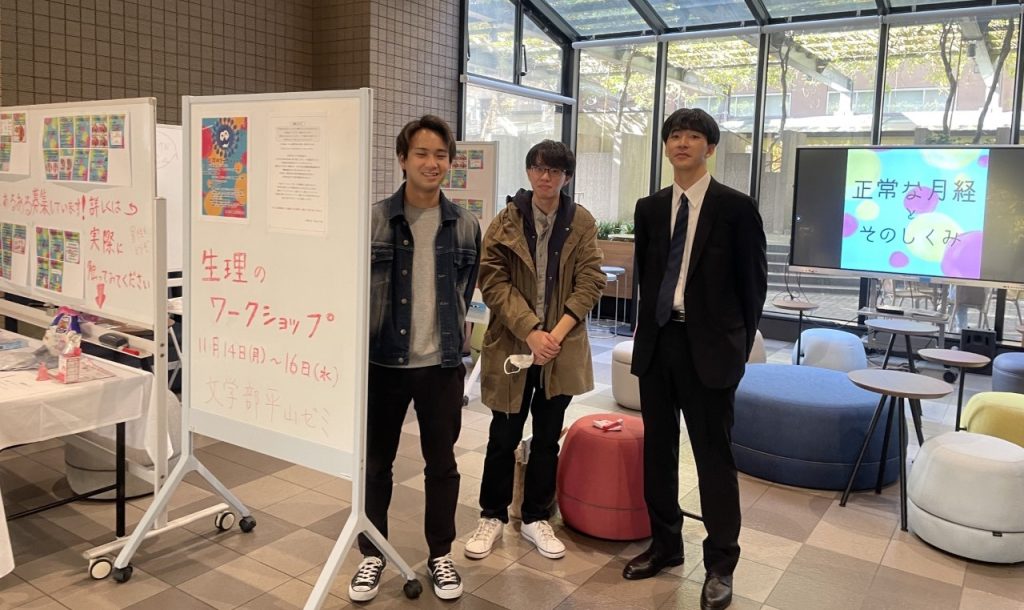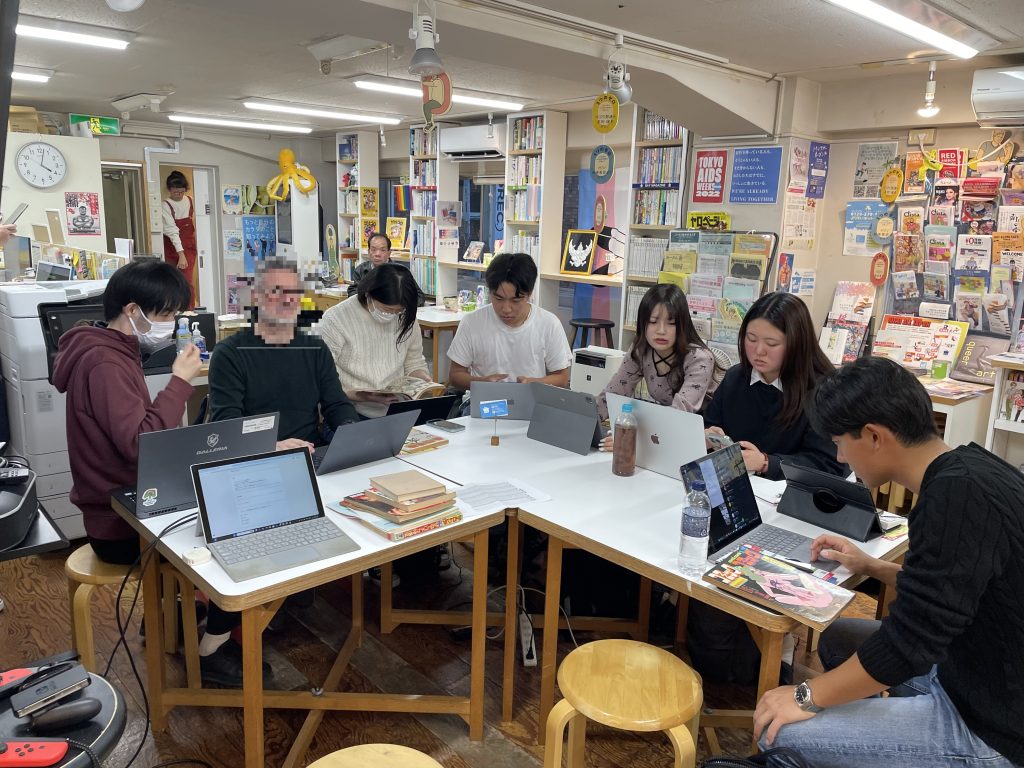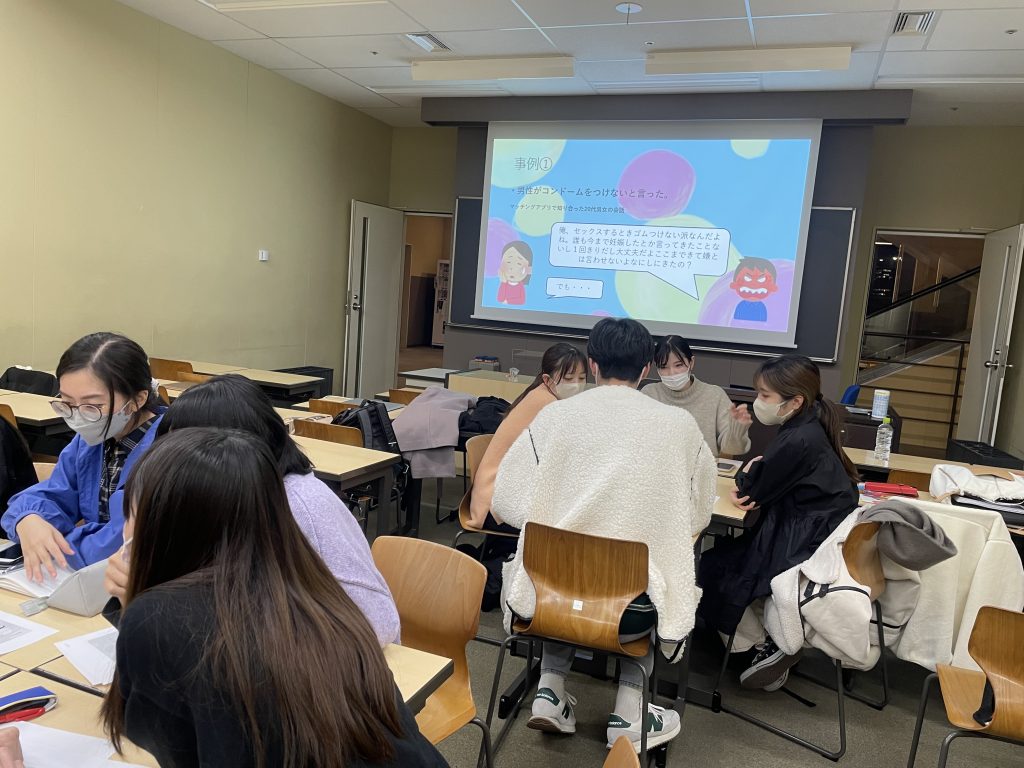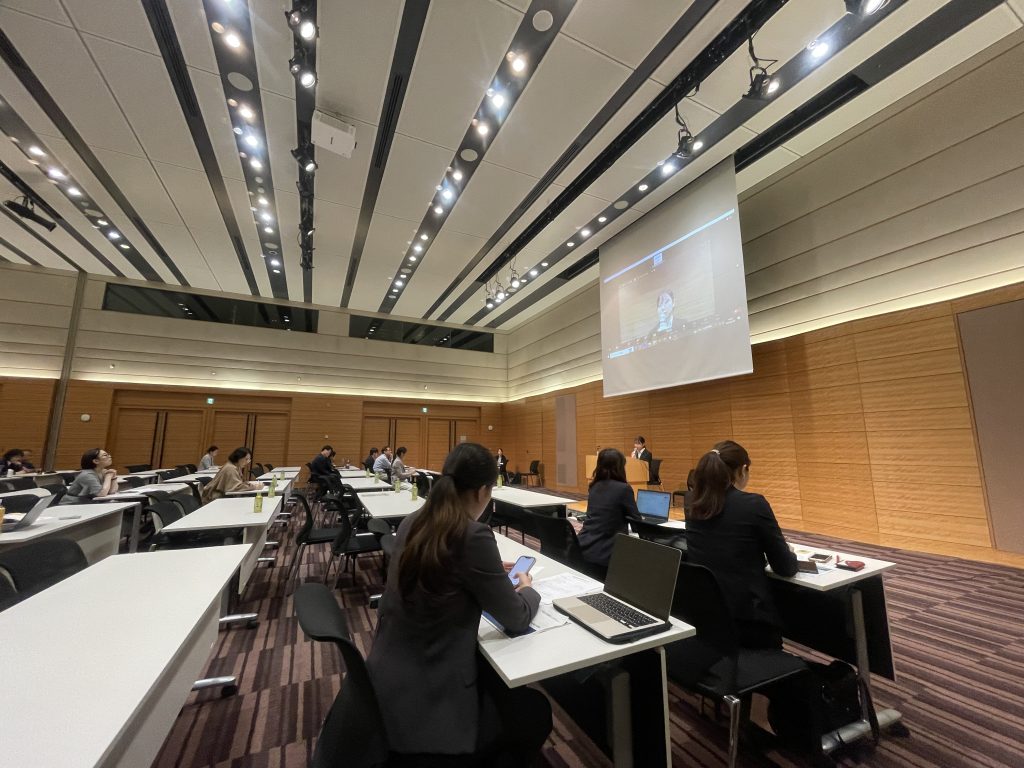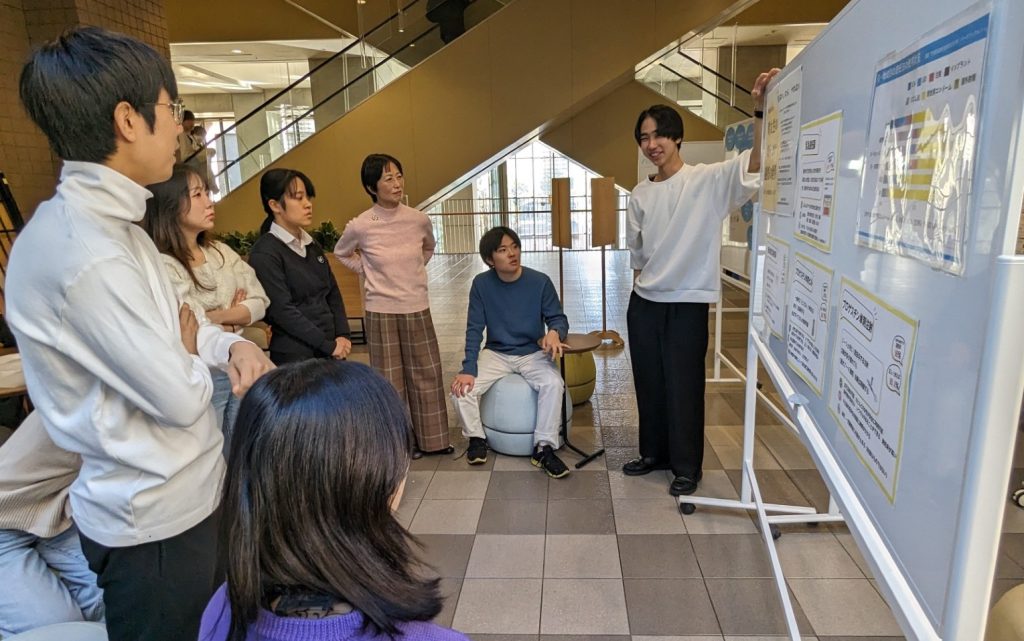Details of the Initiative
Prof. Maki Hirayama addresses a wide range of topics related to sexuality in both her research and teaching. Sexuality is a subject that is often considered taboo or treated as a joke, and it is rarely given academic consideration. Additionally, many students have not received sufficient foundational education about sexuality. As a result, there are numerous challenges that must be tackled both in research and education. From the perspective of the SDGs, the ultimate goal of her research, teaching, and social activities is to achieve “Gender Equality.”
In her seminars and classes, students engage in a wide-ranging study of sexuality and gender. Her seminar has also tackled topics such as menstruation, conducting a survey on the challenges faced by Meiji University students during their menstrual periods. Based on the survey results, the university began distributing sanitary napkin free of charge. This initiative aims to ensure that female students can study free from concerns during menstruation, aligning with the SDG of “Quality Education for All.”
Recently, her seminar has also addressed the topic of contraception. In Japan, the approved and accessible methods of contraception are limited, and many of them are male-centered, lagging significantly behind many other countries worldwide. To address this societal situation, Prof. Hirayama and her students are translating the latest handbook on contraceptive methods, published by WHO and Johns Hopkins University, from English into Japanese. After medical supervision, the completed chapters are made freely available online. This social initiative aligns with the SDG of “Good Health and Well-Being for All.”
